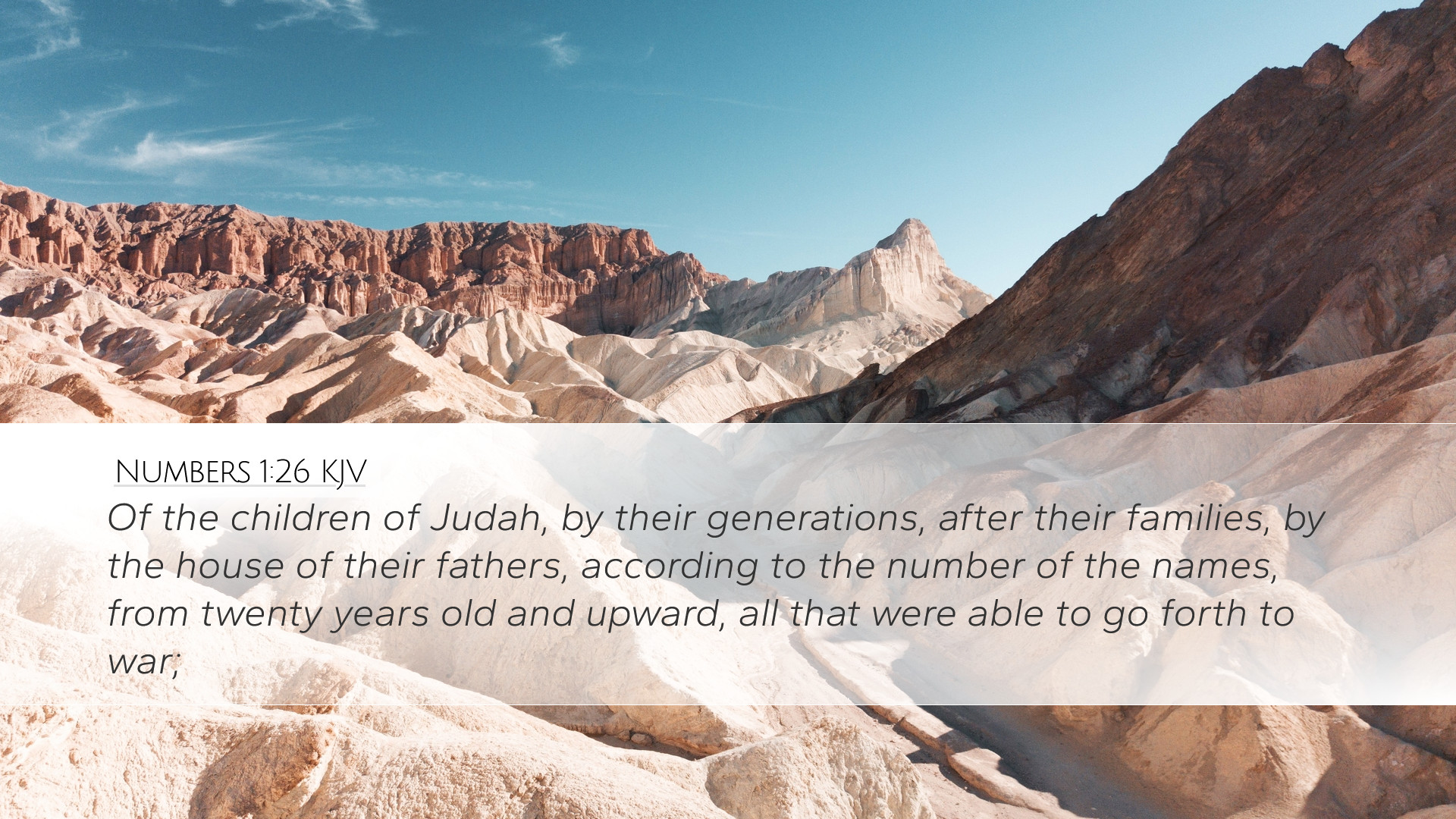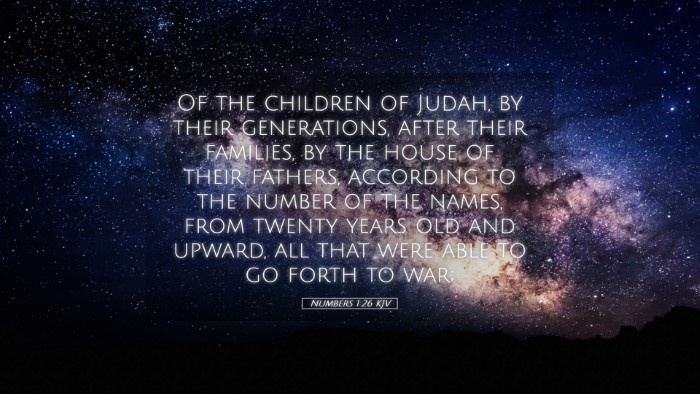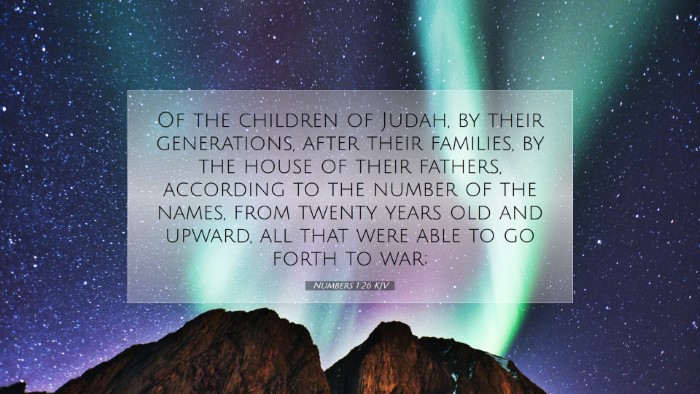Bible Commentary on Numbers 1:26
The verse Numbers 1:26 states, "Of the children of Joseph, after their families, by the house of their fathers, came the children of Manasseh and Ephraim." This verse is significant as it provides insight into the tribal organization of Israel and reflects God's promise to Abraham to make his descendants a great nation.
Contextual Overview
The Book of Numbers begins with a census of the Israelites as they prepare to enter the Promised Land. This enumeration serves multiple purposes: it establishes the military strength of Israel, it highlights the fulfillment of God’s promises, and it lays the foundation for apportioning land among the tribes.
In this particular verse, the focus is on the descendants of Joseph, who had been given a double portion among the tribes of Israel. Joseph’s two sons, Manasseh and Ephraim, represent significant portions of the Israelite population and bear the legacy of their father’s prominence in the narrative of Genesis and Exodus.
Commentary Insights
Matthew Henry's Commentary
Matthew Henry emphasizes the importance of Joseph as a figure of blessing, noting that the split of his inheritance into two tribes was a divine designation that symbolized abundance and favor. He comments on the significance of Joseph's sons being included in the census:"The families of Joseph are distinct; and they are noted here to show their numbers, for they were both great and populous tribes." Henry points out that this not only fulfills God’s promise but also showcases the providence of God in ensuring Joseph's legacy continues through his children.
Albert Barnes' Notes on the Bible
Albert Barnes notes that Joseph's children, Ephraim and Manasseh, emerged as leading tribes in Israel. He suggests that the listing of these tribes reflects their central role in both the social and military structures of Israel. Barnes elucidates that the role of these tribes is crucial as they dominated the geographical region of Canaan. He argues that "the mention illustrates the divine arrangement whereby prosperity and military prowess are established in the land of promise." His analysis underscores the theological implications of God's faithfulness to Joseph's descendants.
Adam Clarke's Commentary
Adam Clarke offers a detailed exploration of the placement of Joseph’s sons within the broader narrative of Israelite history. He emphasizes the legacy of Joseph as a model of faithfulness and obedience. Clarke indicates that while Ephraim and Manasseh were treated as separate tribes, they were intrinsically connected to their father’s narrative. He states, "The mention of these tribes brings to mind the story of God's provision for His people through trials," highlighting how Joseph’s life foreshadows Israel’s journey through adversity into triumph.
Theological Implications
The mention of Joseph's tribes in Numbers 1:26 carries profound theological significance. Firstly, it reinvigorates the theme of God’s covenantal faithfulness. Just as God promised Abraham, Isaac, and Jacob to multiply their descendants, this census highlights how these promises manifest in tangible ways.
- God's Faithfulness: The division of Joseph into two tribes is a testament to God’s unwavering commitment to His people.
- Representation of Christ: Joseph, often viewed as a type of Christ, shows how deliverance and redemption are integral to God's plan.
- Unity in Diversity: Ephraim and Manasseh's dual representation reminds believers of the diverse gifts within the body of Christ, as emphasized in the New Testament.
Practical Application for Today’s Believers
For pastors, students, and scholars, Numbers 1:26 encourages a deeper understanding of the significance of heritage and identity in the Christian faith. In a modern context, this verse can serve as a reminder of:
- Preserving Legacy: The importance of passing down faith and values to future generations can be gleaned from Joseph's story.
- Community and Identity: Understanding one's place within the community of believers promotes unity and a sense of belonging.
- Responding to God's Promises: Reflecting on God’s faithfulness can inspire believers to respond with faith in challenging circumstances, similar to Joseph's journey.
Conclusion
Numbers 1:26 serves not only as a historical record but also as a profound spiritual lesson. Through the lens of public domain commentaries by respected theologians, we gain insights into the significance of Joseph's legacy, God's faithfulness, and the intricate tapestry of identity within the people of God. As we contemplate this verse, may we be encouraged to reflect on our own heritage of faith and the promises of God that guide our lives.


